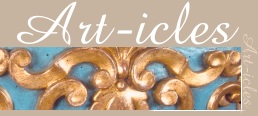      
|

Giacomo Casanova (date : 30 August 2001), from Olivia Jaumard Do you know this figure who embodies the sumptuousness of 18th century Italy so well ? Do you know this bold, inventive, unpredictable man, a sort of magician whose existence has fascinated so many ? This libertine said by Alfred de Musset to "have little religious faith and even less conscience". More than a man, he is a myth, totally committed in body and soul to the pursuit of adventure... Giacomo Casanova is born in Venice on April 2nd 1725 to actor parents. He is soon left to his own devices when, following the death of his father, his mother Zanetta abandons him. He then goes to live with his grandmother, Marzia Farusi, who initiates him into the rituals of the occult when he is 10 years old. In 1734 he leaves to study in Padua and, anxious to gain social advancement, he embarks on an ecclesiastical career. Armed with his doctorate he returns to Venice in 1741 but does not stay long as he is obliged to go to Rome in 1743. He is now 18 years old and enters the service of Cardinal Acquaviva. It isn't long before he is expelled for seducing the Cardinal's daughter. The end of his ecclesiastical career sees the beginning of a new, eventful life which Casanova defines in "three acts" in his memoirs. In 1745 he joins up as a soldier to fight in Corfu and Constantinople. He then returns to Venice and becomes a violinist. However, as a result of a chance encounter, Casanova becomes a rich lord. After a ball at the Soranzo palace Casanova is tired and decides to leave the orchestra. At that very moment Senator Bragadin is preparing to go home but suddenly suffers a stroke. Casanova comes to his aid, takes him home and acts as doctor. Bragadin is troubled by this young inventive man and soon considers him his adopted son, thus enabling him to attain a better life for himself. "For weeks the carnival throws masks in the street and the rules of everyday life are broken. Casanova, the libertine, disguised as Pierrot, takes part in a ball organised in the parlour of a convent so that he can meet his two charming mistresses at the grille and compare them with each other." For, he says, "in Venice during the carnival these innocent pleasures are permitted in convents. The public in the parlour and the nuns inside behind their large grilles watch the festivities. At the end of this day, the ball over, everyone leaves and the poor recluses enjoy what they have seen for a long time." He then spends some time in several towns in Italy and France and is made a Freemason in Lyon in 1753. On his return to Venice, he is arrested on July 24th 1755 for practising magic, libertinage and atheism. He is imprisoned in "The Leads", notorious for being a prison "from which nobody has ever escaped". Casanova describes this episode of his life in "History of My Escape from The Leads". The roof is made of lead and the only entrances are that of the gate of the Ducal Palace and that of the building whose only access is from the Bridge of Sighs. However Casanova very quickly decides to escape. He first tries to dig a passage to the lower rooms. But on August 25th 1755 a prison guard tells him that he is to be transferred to a new cell and all Casanova's plans are dashed. Nevertheless, during the night of October 31st to November 1st 1756 Casanova succeeds in escaping by the prison roof. He finds himself "on the highest point of the roof", crosses the Piazzetta, finds a gondola and manages to flee. Earning his living from gambling and deception, a tireless seducer, he wanders from country to country. In 1760 he even receives the cross of the "golden spur" from the pope and calls himself "Chevalier de Seingalt". In 1763, rich, brilliant and prestigious, Casanova experiences his first failed love affair. "It was from this day", he says, "that I began to die." The second act takes place between 1764 and 1783. He continues his escapades from Russia to Poland where he rubs shoulders with great figures (such as Catherine II or Voltaire.) Then to Spain and France and finally to Italy where he is once again forced to flee as a result of a financial scandal. The third act takes place at the Château de Dux in Bohemia where the ageing Casanova dreams of becoming a writer (he publishes the Icosameron in 1788.) Despite many lies and exaggerations in his memoirs Casanova has left a magnificent account of his time - also known as the Age of Enlightenment - of philosophical clarity, the quest for pleasure and perhaps quite simply, liberty. |
  |
|||
|
|||||